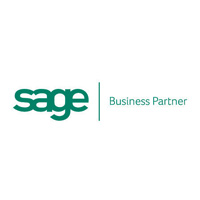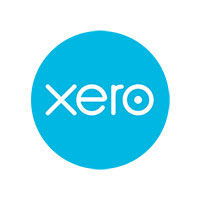In the last few days, the Government has made major announcements about help for small businesses and individuals affected by coronavirus.
Download our Coronavirus Business Support Guide
Below is a summary of the significant points, although details are awaited as to how some of these schemes may be accessed.
The following measures were announced in the Budget and have not (to date) been updated.
- Statutory Sick Pay (SSP) to be paid from the first day of absence, not the fourth, where people have the virus or have to self-isolate, or care for such people.
- Support through Universal Credit and Employment and Support Allowance for self-employed people and others not entitled to SSP.
- Full funding of the cost of two weeks’ SSP for small and medium-sized employers whose workers have claimed SSP as a result of coronavirus.
- Businesses and self-employed individuals in financial distress will be able to negotiate ‘time to pay’ arrangements with HMRC without incurring late payment penalties.
At a press conference on Tuesday 17 March, the following additional measures were announced.
- Retail, hospitality and leisure sectors
All businesses (not just those with a rateable value of less than £51,000, as previously announced), will pay no business rates for 2020/21.
Those businesses with a rateable value below £51,000 will also be eligible for an additional cash grant of up to £25,000 (i.e. cash payment from the government) per business, to help them through this period.
This means that every single shop, pub, theatre, music venue, restaurant, etc. will pay no business rates whatsoever for 12 months and, if they have a rateable value of less than £51,000, they can now get a cash grant as well.
- The 700,000 or so small businesses that are already eligible for Small Business Rates Relief will receive a grant of £10,000 (not £3,000, as previously announced) to help with business costs.
For those individuals in difficulty due to coronavirus, mortgage lenders will offer at least a three-month mortgage holiday, so that people will not have to pay a penny towards their mortgage while they get back on their feet.
This will apply to homeowners but not buy-to-let investors.
At a press conference on Friday 20 March, the following additional measures were announced.
A new Coronavirus Job Retention Scheme (CJRS) will be set up to help pay people’s wages. Any employer in the country (small or large, including charitable or non-profit) will be eligible for the scheme.
Employers will be able to contact HMRC for a grant to cover most of the wages of their workforce who remain on payroll but are temporarily not working during the coronavirus outbreak.
UK workers of any employer who is placed on the CJRS can keep their job, with the government paying up to 80% of a worker’s wage costs, up to a total of £2,500 per worker each month.
This will be backdated to 1st March and will be initially open for 3 months, to be extended if necessary.
It can apply to anyone who was on the payroll at 29 February 2020, even if they have subsequently been made redundant, as long as they are reinstated on the payroll.
Any business that needs access to cash to pay their rent, salaries, suppliers, or to purchase stock, will be able to access a government-backed loan on “attractive terms” (which have not yet been specified).
That support will be delivered to small and medium businesses via the new Coronavirus Business Interruption Loan Scheme (announced at the Budget), which will now provide loans of up to £5 million, with no interest due for the first 12 months (not 6 months, as announced previously).
The scheme will be up and running by the start of next week.
VAT payments due by all VAT-registered businesses between now and the end of June will be deferred until the end of the tax year.
No VAT registered business will have to make a VAT payment normally due with their VAT return to HMRC in that period.
Income tax payments due on 31 July 2020 under the Self Assessment system will be deferred to January 2021, benefiting the cash flow of up to 5.7m self-employed businesses.
The standard rate in both Universal Credit (UC) and Tax Credits will be increased by £20 a week for one year from April 6th, meaning claimants will be up to £1,040 better off.
The ‘minimum income floor’ for the self-employed claiming UC is temporarily suspended for everyone affected by the economic impacts of coronavirus.
This means that every self-employed person can now access, in full, Universal Credit at a rate equivalent to SSP for employees.
There will be additional support for renters, through increases in housing benefit and Universal Credit.
From April, Local Housing Allowance rates will pay for at least 30% of market rents in each area.
The Chancellor’s statement can be found at GOV.UK.
Updated guidance for employers, businesses and employees is available at:
Please contact Andrew Meredith if you would like to discuss any of the information covered; on 01689 877081 or complete our online form.
Registered as Auditors in the United Kingdom by the Association of Chartered Certified Accountants.





